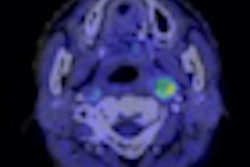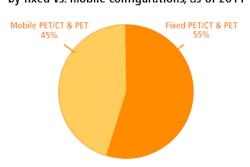Preliminary results from the study indicate that two particular areas of the brain that deal with function, calculation, and cognition show statistically significant decreases in brain metabolism following chemotherapy.
"Since PET/CT has become a diagnostic tool for the characteristic brain metabolic changes seen in cognitive decline associated with Alzheimer's dementia, our study queries whether PET/CT demonstrates brain metabolic changes in the cases of cognitive decline experienced by our breast cancer patients receiving neoadjuvant chemotherapy," said presenter Rachel Lagos, a radiology resident at WVUH.
The researchers evaluated FDG metabolism on breast cancer staging and restaging PET/CT examinations on patients diagnosed with breast cancer between 2004 and 2009, and who subsequently received neoadjuvant chemotherapy.
For each of the 40 patients in the study, two examinations at 12-month intervals were analyzed and comparisons were conducted in 63 brain regions. Data from each staging PET/CT were then compared with datasets from the respective restaging PET/CT.
Two brain regions showed statistically significant decreases in brain metabolism following chemotherapy: the inferior frontal gyrus pars opercularis and the angular gyrus, which contribute to executive function, calculation, and cognition.
"The clinical benefit is to possibly provide an accurate diagnostic and monitoring tool, which then affords patients appropriate access to treatment and healthcare resources," Lagos said.
The results of this research are part of a larger clinical trial led by Dr. James Abraham, a hematology oncologist at WVUH. Abraham and his team are collecting clinical data on breast cancer patients receiving neoadjuvant chemotherapy. In the future, Lagos added, the clinical and imaging data will be analyzed for statistically significant results.



















